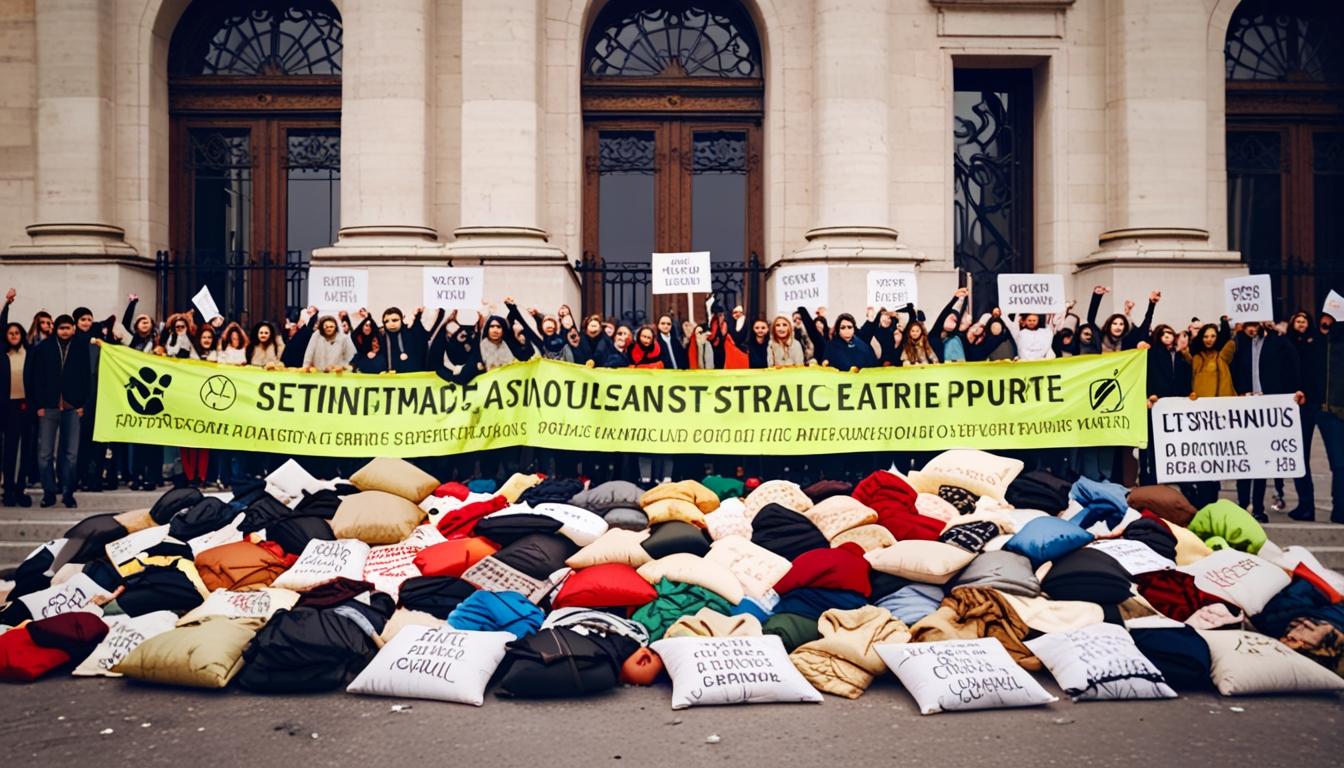The French Senate is set to debate a crucial anti-fast-fashion bill aimed at tackling the environmental impact of the textile industry, following a unanimous vote in the National Assembly.
The French Senate is set to debate a significant anti-fast-fashion bill in the week of May 19, as announced by Véronique Louwagie, the Minister in charge of trade, SMEs, and the social and community economy. This piece of legislation addresses the environmental impact of the textile industry, having made considerable strides since its initial tabling over a year ago following a unanimous vote in the National Assembly.
Originally anticipated for discussion earlier this year, the Senate’s examination of the bill was postponed indefinitely, prompting considerable discontent from environmental organizations and segments of the fashion industry. Louwagie, while responding to questions from MP Olivia Grégoire in the National Assembly on March 19, confirmed the fresh timetable for the bill’s discourse.
Louwagie emphasized the emergence of fast fashion, highlighting its significant environmental, social, and economic ramifications. She pointed to the influx of products from foreign platforms and the need for national and European measures, including revising customs duties and addressing fraud. The government, vested in advancing this bill, has shown commitment to various aspects necessary for regulation in the fashion and crafts sectors.
On March 19, environmental groups intensified their advocacy by depositing textile waste outside the Senate, underscoring the urgency surrounding the issue. During the Senate’s Regional Planning and Sustainable Development committee session, which focused on the bill, amendments were made to refine its provisions, all of which received unanimous approval.
The bill clarifies its definition of fast fashion and introduces penalties that consider not only environmental consequences but also the commercial practices associated with fast-fashion retailers. Louwagie stated, “the bill now comprises several other elements… focusing on the breadth of range but also the fact that the prices charged do not encourage [garment] repairs.” This conceptual expansion aims to tackle various facets of fast fashion’s detrimental impact.
The Senate committee adopted eleven amendments during its review, modifying the original draft without changing its core intentions. These amendments specify targeted practices and entities, particularly those operating online sales platforms that promote rapid commercial turnover. Additionally, the legislation aims to inform consumers about reducing, reusing, repairing, and recycling products by placing warnings alongside product prices.
Key provisions of the bill stipulate that fast-fashion companies must designate a representative based in France to ensure compliance with newly established regulations regarding extended producer responsibility. To incentivize compliance, the bill proposes a system of penalties and bonuses linked to environmental performance; for instance, penalties on fast-fashion items could increase progressively from €5 in 2025 to €10 by 2030.
Advertising restrictions are also included in the bill, proposing a ban on marketing from certain fast-fashion players to curb consumer attraction. Furthermore, the legislation introduces new reporting obligations for the government in relation to carbon emissions from imports, stressing the importance of aligning European health, social, and environmental standards on textile products.
The Committee is also exploring a shift in the burden of proof regarding compliance with EU standards for textile imports, suggesting that it would become the responsibility of exporters to prove adherence.
With the backdrop of heightened geopolitical tensions influencing trade and regulatory dialogues, the upcoming debates in May concerning this anti-fast-fashion bill are poised to be complex and multifaceted, reflecting broader trends in sustainability and consumer protection within the EU’s fashion industry.
Source: Noah Wire Services



